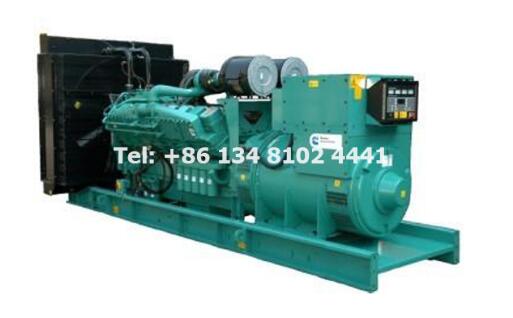Choosing the right generator set is a crucial decision that depends on various factors related to your power requirements. Whether for residential, commercial, or industrial use, understanding your specific needs is the first step in the selection process.
1. Assess Your Power Requirements
Before selecting a generator set, assess your power needs. Determine the essential appliances, equipment, or systems that require backup power during outages. Consider both the running and starting power requirements of these devices to calculate the total load.
2. Consider Fuel Type
Generator sets are available in various fuel types, including diesel, gasoline, natural gas, and propane. Each fuel type has its advantages and considerations. Diesel generators, for example, are fuel-efficient and well-suited for continuous operation, while gasoline generators are more portable.
3. Determine Portability Needs
Depending on your use case, you might need a portable or stationary generator. Portable generators are versatile and easy to move, making them suitable for outdoor activities or temporary power needs. Stationary generators, on the other hand, are installed permanently and provide a more robust solution for backup power.
4. Evaluate Noise Levels
If noise is a concern, especially in residential or urban settings, consider the noise levels of the generator set. Many modern generators are designed to operate quietly, making them suitable for environments where noise reduction is essential.
5. Calculate Run Time
Run time refers to how long a generator can operate on a single tank of fuel. It's a critical factor, especially during prolonged power outages. Choose a generator with a run time that meets your needs without requiring frequent refueling.
6. Factor in Maintenance Requirements
Consider the maintenance requirements of the generator set. Some generators require more regular maintenance than others. Choose a generator that aligns with your maintenance capabilities and schedule.
7. Explore Automatic Transfer Switch (ATS) Options
An Automatic Transfer Switch (ATS) is a device that automatically transfers power from the main electrical grid to the generator during an outage. Investing in a generator set with ATS ensures seamless power transition without manual intervention.
8. Budget Considerations
Establish a budget for your generator set purchase. Generator prices vary based on factors such as power capacity, features, and fuel type. Balancing your budget with your power requirements will help you make a cost-effective choice.
9. Research Reliable Suppliers
Once you have a clear understanding of your requirements, research and identify reliable generator set suppliers. Look for suppliers with a reputation for quality products, excellent customer service, and transparent pricing.
Conclusion: Making the Right Choice
Choosing a generator set involves careful consideration of your power needs, fuel preferences, portability requirements, and budget constraints. Taking the time to assess these factors will help you make an informed decision and ensure that the generator set you choose meets your expectations.
For inquiries about generator sets or to find a reliable supplier, please do not hesitate to contact us. Our dedicated team is ready to assist you in sourcing the right generator set that aligns with your specific requirements and provides reliable power when you need it.

Comments
Post a Comment